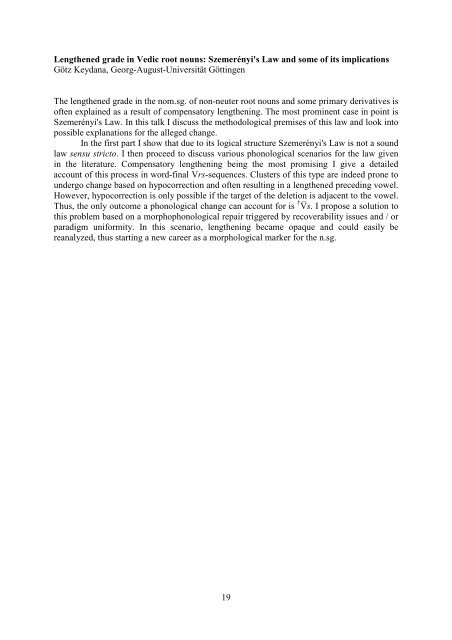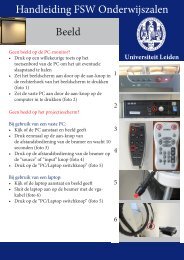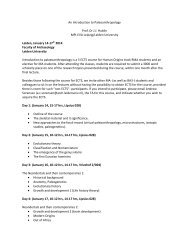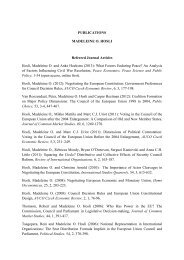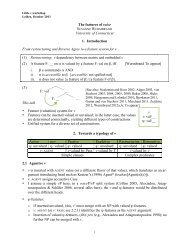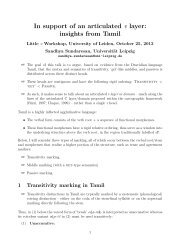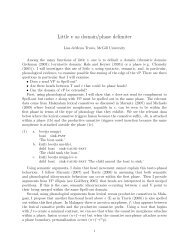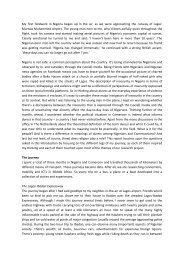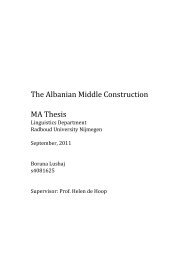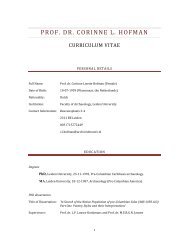Programme
Programme
Programme
You also want an ePaper? Increase the reach of your titles
YUMPU automatically turns print PDFs into web optimized ePapers that Google loves.
Lengthened grade in Vedic root nouns: Szemerényi's Law and some of its implications<br />
Götz Keydana, Georg-August-Universität Göttingen<br />
The lengthened grade in the nom.sg. of non-neuter root nouns and some primary derivatives is<br />
often explained as a result of compensatory lengthening. The most prominent case in point is<br />
Szemerényi's Law. In this talk I discuss the methodological premises of this law and look into<br />
possible explanations for the alleged change.<br />
In the first part I show that due to its logical structure Szemerényi's Law is not a sound<br />
law sensu stricto. I then proceed to discuss various phonological scenarios for the law given<br />
in the literature. Compensatory lengthening being the most promising I give a detailed<br />
account of this process in word-final Vrs-sequences. Clusters of this type are indeed prone to<br />
undergo change based on hypocorrection and often resulting in a lengthened preceding vowel.<br />
However, hypocorrection is only possible if the target of the deletion is adjacent to the vowel.<br />
Thus, the only outcome a phonological change can account for is † V̅ s. I propose a solution to<br />
this problem based on a morphophonological repair triggered by recoverability issues and / or<br />
paradigm uniformity. In this scenario, lengthening became opaque and could easily be<br />
reanalyzed, thus starting a new career as a morphological marker for the n.sg.<br />
19


